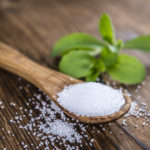By David Blyweiss, M.D.
By now, I’m sure you know that I am a huge fan of antioxidants. Vitamins A, C, and E are critical in the war against those errant and damaging molecules known as free radicals. Co-Q10 and green tea also protect against the oxidative damage that free radicals trigger. But, as good as these antioxidants are, there is one that stands head and shoulders above the rest—glutathione, the body’s master antioxidant.
Glutathione is fundamental to a wide range of metabolic and regulatory functions throughout the body. It’s so essential that a deficiency has been linked to a number of diseases including anemia, neuropathy, HIV/AIDS, cirrhosis, hepatitis, COPD, asthma, Crohn’s Disease, gastritis, duodenal ulcer, pancreatitis, heart attack, coronary artery disease, stroke, diabetes, neurodegenerative diseases like Alzheimer’s and Parkinson’s, Cystic fibrosis, cancer and seizure disorders.
Unfortunately, it’s all too easy to become depleted. Exposure to sunlight, viral infections, environmental toxins, household chemicals, heavy metals, surgery, inflammation, burns, septic shock, intense triathalon type training and the overuse of certain pharmaceutical drugs like acetaminophen can all diminish your glutathione levels. Inadequate protein intake can also shortchange the amount of glutathione that is available to your body. And simply getting older can reduce levels of this critical antioxidant.
Because glutathione is a tripeptide created in the body from the amino acids glutamine, cysteine and glycine, it’s intimately involved in maintaining the antioxidant status of every one of your cells and all the tissues in the body. Not only is glutathione an incredibly powerful antioxidant on its own, it also recycles vitamin C and vitamin E, essentially giving them new life to continue quenching free radicals. It also aids in the production of enzymes that help to detoxify environmental estrogens that can be harmful when they accumulate in the body.
Since glutathione is so very critical to maintaining good health it’s important to maintain high levels. Several substances have been shown to increase the body’s production of glutathione. These include n-acetyl cysteine (NAC), glutamine, glycine and taurine. Supplemental alpha lipoic acid and vitamin C can also kick start glutathione production.
Of course, you can also take glutathione itself—however the jury is still out on just how effective that is. While most studies discount the idea of taking supplemental glutathione, a few have demonstrated that taking glutathione orally can directly increase plasma and tissue glutathione concentrations and exert positive physiological benefits.
Are You Suffering From...
- Love handles and a pot belly
- Romance that isn't what it used to
- Forgetfulness and inattention
- Low (or no) strength and endurance
- A sex drive that's shifted into neutral...or worse
If so...you may have Mature Male Burnout. Click here to discover more about this unique condition and what you can do about it.
In one study evaluating the amount of glutathione in the blood after supplementation, researchers saw a significant boost in levels 90 to 120 minutes after the supplements were taken—and levels remained high for over three hours. In a similar investigation at Louisiana State University Medical Center, glutathione concentrations more than doubled within 30 minutes,
But it’s one thing to increase plasma levels of this powerful antioxidant and another to confirm that it benefits the body. A fascinating study conducted in 2002 found that taking glutathione supplements suppressed oxidative stress and might even have the potential to treat the symptoms of diabetes, including neuropathy and kidney dysfunction.
But until the experts agree, I recommend taking glutathione’s supplemental precursors. Among my favorites are alpha lipoic acid (150 mg. twice daily), NAC (600 mg. twice daily) and taurine (500 mg. twice daily). Each of these antioxidant-rich supplements will help your body make ample amounts of glutathione to guard against free radical damage and the diseases that damage can lead to.
References:
Aw TY. Oral glutathione increases tissue glutathione in vivo. Chemical and Biological Interactions. 1991;80:89-97.
Franco R. The central role of glutathione in the pathophysiology of human diseases. Archives of Physiology and Biochemistry. 2007;113:234-258.
Ueno Y. Dietary glutathione protects rats from diabetic nephropathy and neuropathy. Journal of Nutrituion. 2002;132:897-900






